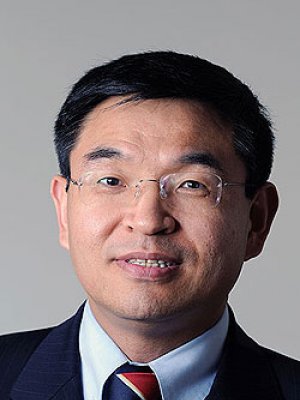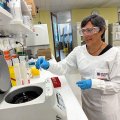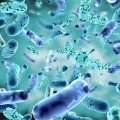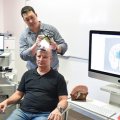
The University of Queensland will receive $33.32 million in federal government research funding through 94 successful Australian Research Council Discovery Projects grants announced yesterday.
This includes the award of 22 prestigious ARC Fellowships, placing UQ equal second in the nation.
Vaccine delivery, demographic migration patterns, nanotechnology, the banking system, neurosciences, genetics and desalination are just some of the fields of study for which UQ researchers successfully attracted funding.
Deputy Vice-Chancellor (Research) Professor Max Lu congratulated all the University’s ARC grant recipients, and said the funding reinforced UQ’s position in the top echelon of Australia’s research-intensive universities.
“Our latest ARC successes speak to the outstanding quality of our researchers and their commitment to working at the leading edge of discovery,” Professor Lu said.
“Moreover, our 2011 ARC Fellowships reward the highest-calibre researchers at early career, mid-career and professorial levels.”
Professor Istvan Toth , who holds a joint appointment in the UQ's School of Chemistry & Molecular Biosciences and the School of Pharmacy, received the University’s largest Discovery Projects grant including an Australian Professorial Fellowship — $1.03 million for a project focused on liposaccharide-based peptide and vaccine delivery systems.
The technology, which could help with development of new treatments for prostate cancers and fertility conditions, also could be extended to significantly increase the number of treatments available on the market.
Dr Christopher Clarkson, from UQ’s School of Social Science, was awarded $753,000 and a Queen Elizabeth II Fellowship over five years for an archaeology research project that will probe “a fundamental issue in world prehistory: how and when did humans first cross from South-east Asia into Australia?”
“Three new archaeological excavations using novel methods of analysis will assess the nature of behavioural complexity and human evolution at a time when Australia was first colonised more than 45,000 years ago,” Dr Clarkson said.
Other significant ARC Discovery Projects grants to UQ researchers were:
- $979,230, including an Australian Professorial Fellowship, for a project on Magnetic Resonance Imaging agents led by Professor Andrew Whittaker;
- $920,000 for a demographic research project examining theories, policy and measures in various countries’ internal migration patterns, in a project led by Professor Martin Bell;
- $750,000 for a project examining a newly discovered plant hormone and how it controls plant growth, water and nutrient uptake and wood production, led by Associate Professor Christine Beveridge from UQ’s ARC Centre of Excellence in Integrative Legume Research;
- $550,000, including an Australian Research Fellowship, to Dr Seth Olsen for a combined theoretical and experimental approach exploring why non-fluorescent dyes become fluorescent when they bind to certain biomolecules. This research will help guide the development of smart, biomimetic energy technologies.
- $270,000 to Professor Graeme Turner, including an Australian Postdoctoral Fellowship to Dr Anna Pertierra, for an international study on the changing socio-cultural functions of television.
UQ also garnered 16 new ARC Linkage Projects in collaboration with Australian and international industry partners. Full details of UQ’s achievements are published on the ARC website at http://www.arc.gov.au/.
Media: Fiona Cameron, UQ Communications, ph 07 3346 7086 or Kathy Grube, ph 07 3346 0561
.jpg)










